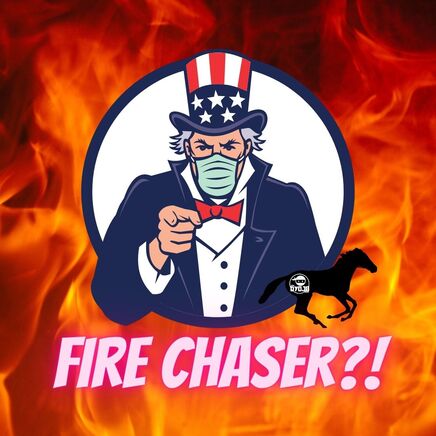What is fire damage chasing?What is fire chasing? In its broadest application, fire chasing would apply to any contractor showing up to a fire-damaged structure without being invited. In the extreme opposition to chasing a fire damage loss, the detractors would have you believe that the only ethical approach to such a project would be via the invite of the agent, adjuster, and/or the client. This is laughable at best given that so many of these same people likely would lambast preferred vendor or third-party administrator (TPA) work, which is where the majority of these magical invites come from. Is fire damage chasing good business?If you turn to the internet for an answer to the question of whether fire damage chasing is ethical or good business practice, you are in for a variety of opinions. Whether you are growing your career or growing your business, you must always remember one key thing – it’s your DANG journey. No one is going to walk it for you. No commenter on social media, no coach, no consultant, no author, and certainly no mediocre podcast host, is going to take the direct hits when you fail or feel the wins as deeply as you do when you succeed. While it is smart to seek and take in good counsel on any element of business that may be new to you, I think it is important to consider a few universal questions:
The history of fire damage chasingIt’s comical, and lacks historical perspective, for anyone to label fire chasing as ambulance chasing or any other derogatory term. Modern fire fighting as we know it came out of firefighters literally chasing fires and fighting each other for the right to be paid to fight the fire by the insurance company. Let Smithsonian Magazine paint the picture for you, In a scene from the film Gangs of New York, set in Civil War-era Manhattan, a crowd gathers in the night as a fire breaks out. A volunteer fire department arrives, and then another. Instead of cooperating to extinguish the blaze, the rival fire companies head straight for each other in an all-out brawl as the building burns. Providing for your family and growing your business is a battle. No one should look down on another person for trying to do either of these things. In my opinion, fire chasing is not a dirty methodology. Obviously, some people do it in less than reputable ways and it is important for members of the industry to address this. Bad actors are bad for your reputation in a local market and the perception of the industry as a whole.
More on the topic of fire damage chasingThis is an excerpt of an article that was published by Cleaning and Restoration (C&R) Magazine, please read the full article for additional information and context.
Additional Resources from The DYOJO
0 Comments
Leave a Reply. |
Words
The DYOJO - helping contractors shorten Archives
June 2024
Categories
All
EstimatingMarketingInsurance ClaimsLeadership |
|
| |||||||


 RSS Feed
RSS Feed
